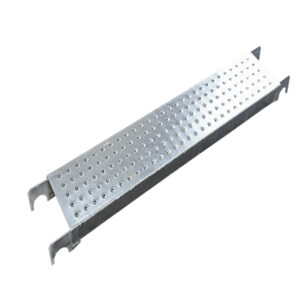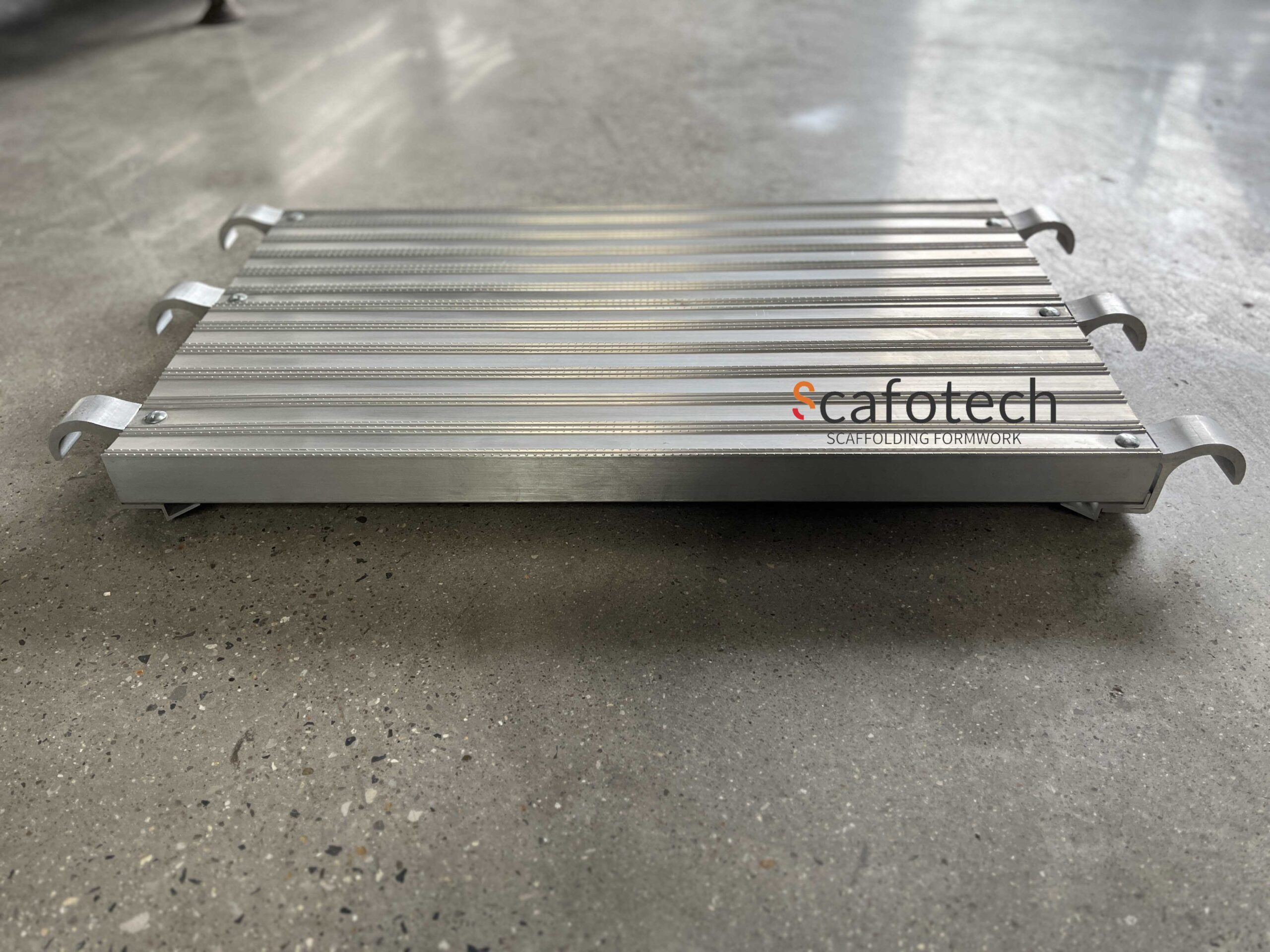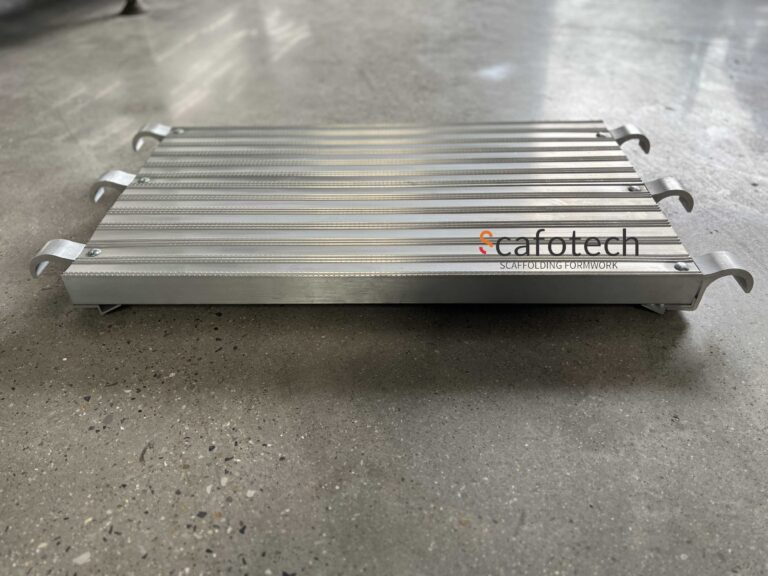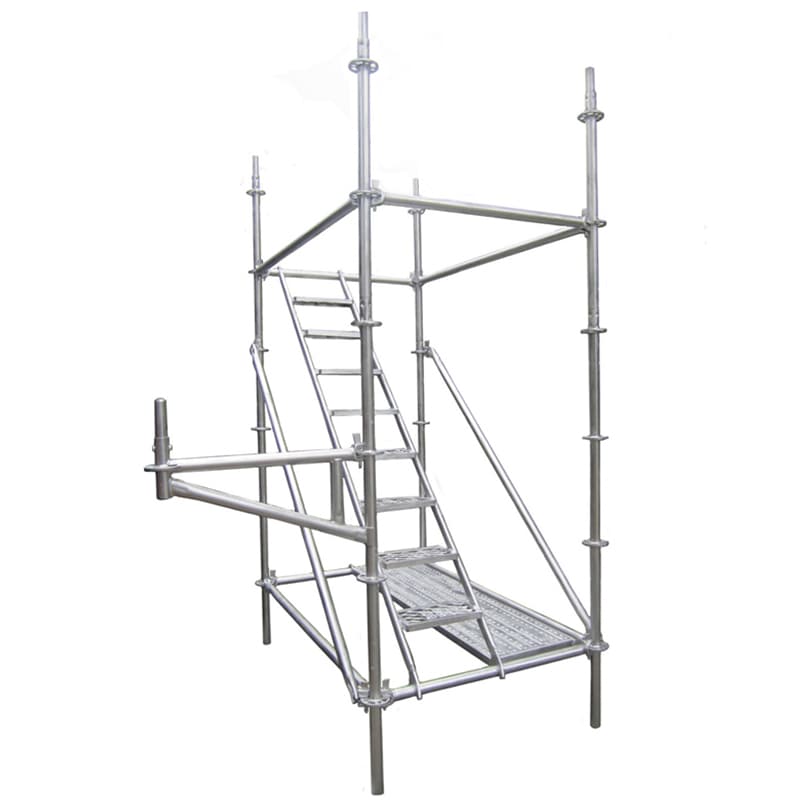Have you ever considered the importance of the platforms that construction workers stand on while working at great heights? These platforms, known as walk planks, are an integral part of any scaffolding system. Among the various types of walk planks, aluminium walk boards are gaining significant attention in the construction industry. But why is this the case, and how do they compare to other materials like steel and wood?
Aluminium walk boards are a type of walk plank that offer a combination of strength, durability, and lightweight properties. They provide a secure platform for workers and materials, enhancing safety and efficiency on construction sites. Moreover, aluminium walk boards are resistant to corrosion, making them an excellent choice for outdoor construction projects.
Now, let’s explore the benefits of aluminium walk boards and why they are becoming a preferred choice in the construction industry.
Table of Contents
ToggleWhat Makes Walk Planks Essential in Construction?
Walk planks are indispensable in construction for several reasons. They provide a safe and secure platform for workers, reducing the risk of falls and accidents. They also increase efficiency by providing a space for tools and materials, reducing the need for workers to climb up and down the scaffold.
According to data from the U.S. Bureau of Labor Statistics, falls are the leading cause of death in the construction industry. By providing a secure platform, walk planks play a crucial role in reducing this risk.
Aluminium Walk Boards vs. Steel and Wooden Planks



Advantages
Aluminium planks have several advantages over steel and wooden planks, making them an excellent choice for many construction projects:
- Lightweight: Aluminium is significantly lighter than steel, making aluminium planks easier to handle, install, and transport. This can lead to cost savings in terms of labour and transportation.
- Strength and Durability: Despite being lightweight, aluminium is incredibly strong and durable. It can support heavy loads without bending or breaking, making it a reliable choice for construction projects.
- Corrosion Resistance: Unlike steel, aluminium is naturally resistant to rust and corrosion. This makes aluminium planks ideal for outdoor use, as they can withstand harsh weather conditions without deteriorating.
- Low Maintenance: Aluminium planks require minimal maintenance. They are easy to clean and do not need to be treated or painted to prevent rust or rot, unlike steel or wooden planks.
- Recyclability: Aluminium is 100% recyclable and retains its properties indefinitely. This makes aluminium planks a more sustainable choice compared to steel or wooden planks.
- Safety: Aluminium planks are often designed with slip-resistant surfaces, enhancing safety for workers. They also don’t splinter like wooden planks, reducing the risk of injuries.
- Longevity: Aluminium planks have a long lifespan. They don’t warp, crack, or rot like wooden planks, and they don’t rust like steel planks. This means they can provide value for a longer period of time, making them a cost-effective choice in the long run.
These advantages make aluminium planks a versatile and reliable choice for a wide range of construction projects. However, the choice between aluminium, steel, and wooden planks should be based on the specific requirements of each project.
According to a report by Grand View Research, the global aluminium market is expected to grow at a CAGR of 3.1% from 2021 to 2028. This growth is driven in part by the increasing use of aluminium in various industries, including construction.
Disadvantages
While aluminium planks offer many advantages, like any material, they also have a few potential disadvantages when compared to steel and wooden planks:
- Cost: Aluminium is generally more expensive than wood and some types of steel. This higher initial cost can be a barrier for some projects, especially those with tight budgets.
- Heat Conductivity: Aluminium conducts heat more efficiently than wood or steel. This means that in hot environments, aluminium planks can become quite hot to touch, potentially causing discomfort or even burns if not handled with care.
- Scratches and Dents: Although aluminium is a strong material, it’s softer than steel and can be prone to scratches and dents. This doesn’t usually affect the structural integrity of the plank, but it can affect its appearance over time.
- Less Flexibility: Unlike wood, aluminium doesn’t have any give or flexibility. While this is generally a good thing for stability and safety, in certain situations where some flexibility might be beneficial, aluminium planks might not be the best choice.
- Noise: Aluminium can be noisier than wood or steel when walked on or when tools and materials are placed on it. This might be a consideration in environments where noise is a concern.
Despite these potential disadvantages, it’s important to note that the benefits of aluminium planks, such as their strength, durability, and resistance to corrosion, often outweigh these issues. Each project is unique, and the choice between aluminium, steel, and wooden planks should be based on the specific requirements of the project.
How Can Aluminium Walk Boards Benefit Your Construction Project?
Aluminium walk boards can bring numerous benefits to your construction project. They can improve worker safety, increase efficiency, and reduce maintenance costs. They are also environmentally friendly, as aluminium is a recyclable material.
For clients like Michael, who value quality and reliability, aluminium walk boards can provide a superior solution. They meet the highest industry standards, including TUV, SGS, OSHA, and ANIS certifications, ensuring that they meet international safety and quality standards.
Conclusion
In conclusion, aluminium walk boards are an essential component of scaffolding systems, providing a safe and efficient platform for workers. With their unique properties and benefits, aluminium walk boards are set to become a game-changer in the construction industry. Whether you’re a construction company, a scaffolding rental company, or a building material supplier, investing in high-quality aluminium walk boards can bring significant benefits to your business.





